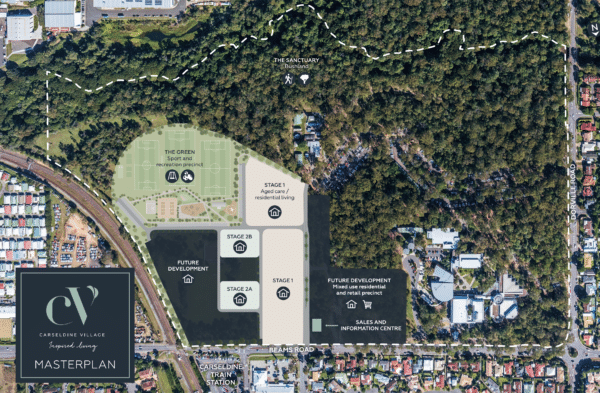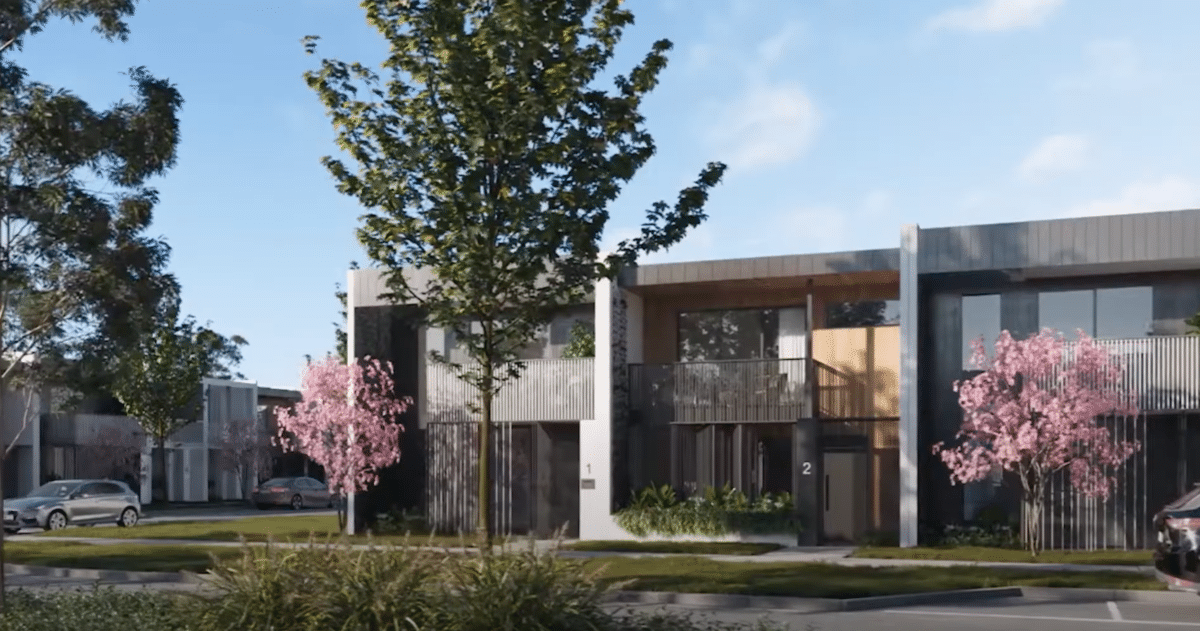In January, Economic Development Queensland (EDQ) designated Carseldine Village, in Brisbane’s north, as a 100% solar + battery neighbourhood. The Carseldine Village includes 194 sustainable living freehold terrace homes featuring solar PV and AlphaESS battery storage systems, designed to EnviroDevelopment’s Six-Leaf standard.
Today, Everygen announced its involvement in the project, which will be to provide the platform to operate a two-year home energy management system pilot at the Village. Through Evergen’s energy control software, the pilot will coordinate the home’s rooftop solar, battery and air conditioning units based on the homeowner preferences and the needs of the network.
25 homeowners will be part of the pilot scheme, the objective of which is to learn how home energy use can be modified throughout the day to provide the best value to the homeowner and to avoid congestion on the grid.
The household’s default mode will be self-consumption of solar power. If the house has a lower load than is being generated, then it will fill the battery. If the battery is full, then it will export to the grid. Ideally, network operators want to optimise when that waterfall effect happens because all of the houses do it simultaneously.
“The aim is to evolve the home energy system to make smarter use of the energy, which is the next step in the long-term development of a domestic solar and storage capability that complements the grid,” Evergen CEO, Ben Hutt, said. “This will become more and more important as homeowners are compensated in ever-smaller amounts (or even penalised) for putting their excess energy into the grid.”

Image: Carseldine Village
The system will learn the homeowner’s usage patterns and make decisions that work with that lifestyle, such as when the owner most usually returns home or runs peak load at their property.
It also allows the system to make decisions to ensure stored power is used to negate peak demands on the grid, such as switching between air conditioning units within a property or by switching off an air conditioning unit for five minutes each hour.
Evergen says while such behaviour only makes a slight difference to an individual user, it allows the entire neighbourhood to manage switching between properties to ensure the development can avoid instances such as network blackouts during heatwaves.
Evergen’s participation in the Carseldine Village project follows on from its work on Mirvac’s ‘House with No Bills’ study in 2018. Across 12 months, the House with No Bills used only 8% more electricity than it generated and operated as ‘energy positive’ for five months, affording the real possibility of the home having zero energy bills in the future.
This content is protected by copyright and may not be reused. If you want to cooperate with us and would like to reuse some of our content, please contact: editors@pv-magazine.com.









By submitting this form you agree to pv magazine using your data for the purposes of publishing your comment.
Your personal data will only be disclosed or otherwise transmitted to third parties for the purposes of spam filtering or if this is necessary for technical maintenance of the website. Any other transfer to third parties will not take place unless this is justified on the basis of applicable data protection regulations or if pv magazine is legally obliged to do so.
You may revoke this consent at any time with effect for the future, in which case your personal data will be deleted immediately. Otherwise, your data will be deleted if pv magazine has processed your request or the purpose of data storage is fulfilled.
Further information on data privacy can be found in our Data Protection Policy.